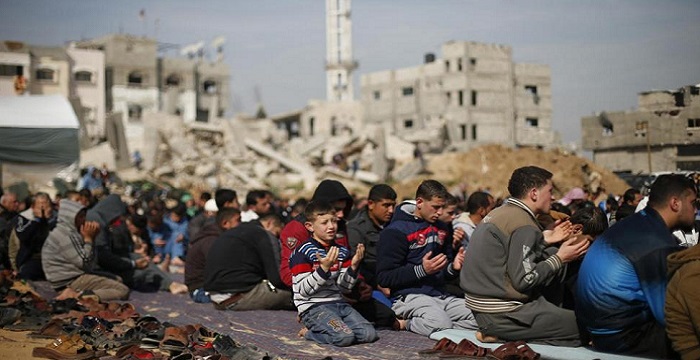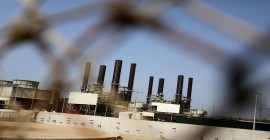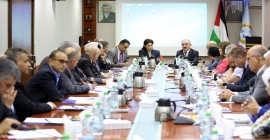231 Thousand Unemployed Individuals in the Gaza Strip

Translated by Tamara Barakat
The Head of the Palestinian General Federation of Trade Unions, Sami Al-Umsi, said that the poverty rate among the labor force in the Gaza Strip reached 70% and the unemployment rate increased to around 60%. The Israeli blockade that has been imposed on the Strip for ten years affected all the industrial and agricultural fields, and greatly crippled and harmed them.
Regarding the Construction and Real Estate sector, Al-Umsi said, “This sector used to employ around 40 thousand employees directly, and 30 thousand others indirectly, but because of the blockade and the continued closing of the crossings it has become almost paralyzed.”
As for the agricultural sector, “Before the blockade, it used to employ around 35-40 thousand employees, but the closing of the crossings, the shortage of pesticides and fertilizers, and the lack of support for the sector led to the decline in the number of its employees to 15 thousand people.”
Moreover, “Then number of employees in the sewing, weaving, and textile industry used to be 9000 people. Despite the fact that the factories’ production capacity plummeted to 20%, they currently employ around 1000 people.”
The number of operating factories in the Metallurgical Industry diminished. It used to include 3900 factories that employed over 23 thousand people. Also, 500 industrial facilities were destroyed during the last Israeli aggression on the Gaza Strip
Al-Umsi also presented the results of calculating the damages to the facilities resulting from the Israeli aggression in 2014, saying, “The number of damaged institutions in the industrial sector was 936 institutions. Also, 3227 facilities were damaged in the commercial sector, 1171 in the services sector, and 93 in the tourism sector.”
He added, “29,845 employees were affected by the war and the targeting of the industrial facilities in the different sectors. Also, the majority of those who became unemployed used to work in the commercial sector, and their percentage reached 32%.”
As for the wood manufacturing industry, he said, “this industry was also affected by the blockade and the closing of the crossings. Over 500 factories and furniture carpentries were forced to shut down, and more than 5000 employees lost their jobs.”
As for the fishing industry, the Israeli occupation has detained 70 fishermen and confiscated 40 boats since the announcement of the ceasefire between the resistance forces and the IOF on August 26, 2014.
He explained that the fishing industry includes 4000 fishermen, 60% of whom practice the profession of fishing. At the moment, fishermen collect around 1000-1800 tons of fish each year – a small amount that resulted from the fact that they are only permitted to fish within 4-6 nautical miles. “This area is like a 'desert’ for the fishermen, as it lacks any big fish.”
Furthermore, Al-Umsi said that since the Government was formed, it canceled the temporary employment program, which caused a big governmental gap that has overcast its shadow over the all the domains of life in the Strip.” He affirmed that the Government did not present anything on the ground to the workers, except for some permits and promises that did materialize.
Meanwhile, he said that the reduction in the UNRWA’s services led to accumulating more suffering on the Palestinians and affected the employees. He demanded that it increase its work efficiency in the professional training program (industry and public works) instead of decreasing its efforts.
Al-Umsi also said that Palestine should be present in all arenas and Arab and international unions, and called on the Arab League and the United Nations to work on placing pressure on the occupation in order to lift the blockade that has been imposed on the Gaza Strip for ten years.
(Palestine Economy Portal)





